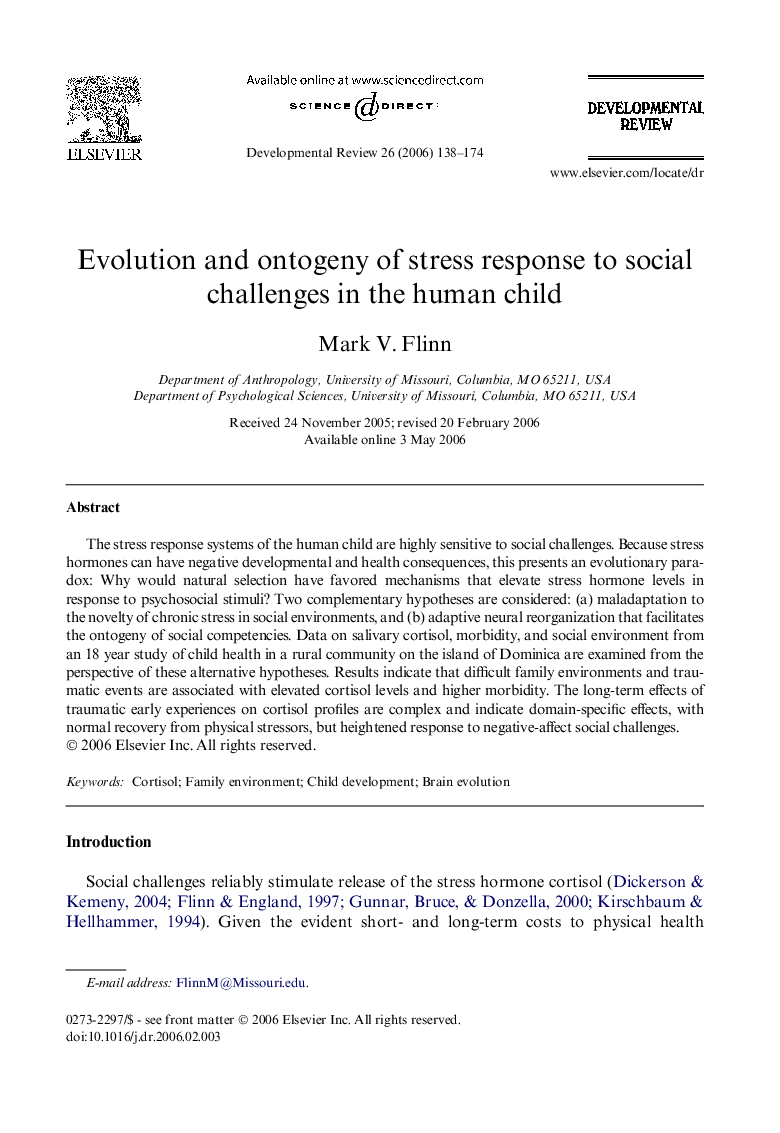| Article ID | Journal | Published Year | Pages | File Type |
|---|---|---|---|---|
| 353593 | Developmental Review | 2006 | 37 Pages |
The stress response systems of the human child are highly sensitive to social challenges. Because stress hormones can have negative developmental and health consequences, this presents an evolutionary paradox: Why would natural selection have favored mechanisms that elevate stress hormone levels in response to psychosocial stimuli? Two complementary hypotheses are considered: (a) maladaptation to the novelty of chronic stress in social environments, and (b) adaptive neural reorganization that facilitates the ontogeny of social competencies. Data on salivary cortisol, morbidity, and social environment from an 18 year study of child health in a rural community on the island of Dominica are examined from the perspective of these alternative hypotheses. Results indicate that difficult family environments and traumatic events are associated with elevated cortisol levels and higher morbidity. The long-term effects of traumatic early experiences on cortisol profiles are complex and indicate domain-specific effects, with normal recovery from physical stressors, but heightened response to negative-affect social challenges.
